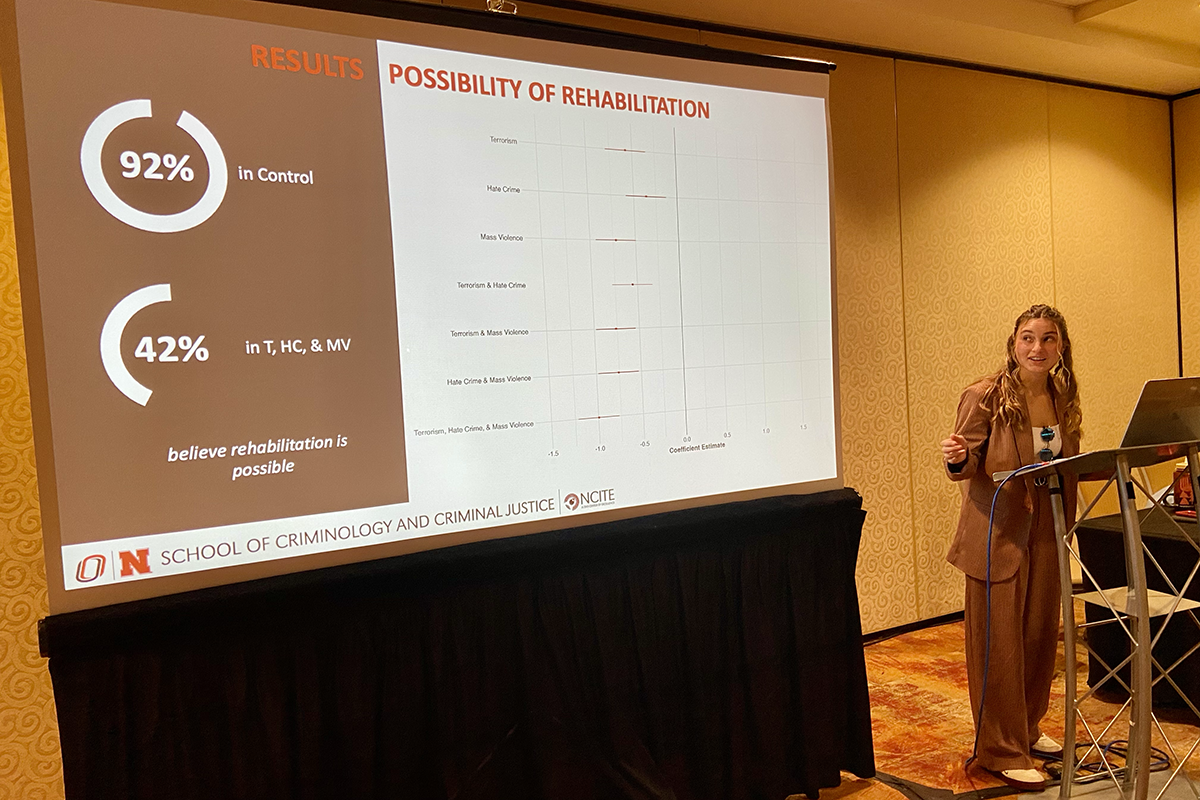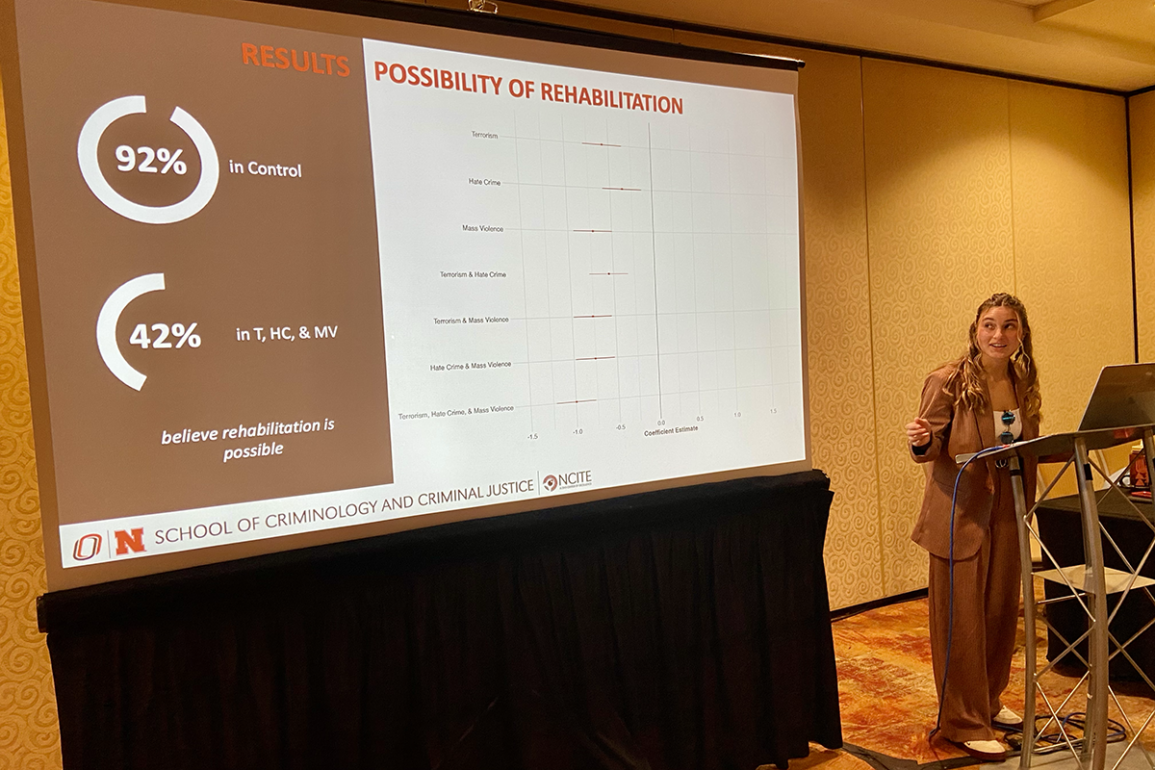
By Callie Vitro
NCITE Junior Research Associate
Philadelphia is known for important landmarks: the Liberty Bell, Independence Hall, and the Rocky Steps. But the City of Brotherly Love is also home to one of the world’s first penitentiaries – Eastern State – in use from 1829 to 1971.
In November, I joined a group of my fellow criminology graduate students in a tour of the facility. We walked through the cold, stone cellblock corridors, which became increasingly modern as we witnessed firsthand the evolution of American prison systems. Originally built to house 250 incarcerated individuals in constant solitary confinement, the penitentiary eventually grew to house over 1,700. Now a museum, it stands as a monument to the lasting impact of mass incarceration, racial injustice, and the changing policies and attitudes surrounding criminal justice in the United States.
I left with a newfound appreciation for my chosen discipline – as criminologists, our research has a real-world impact, and we can use it to push the U.S. criminal justice system forward.
This was just one memorable experience that I took from the American Society of Criminology (ASC) Conference, Nov. 14-18 in Philadelphia. I had the wonderful opportunity to attend the conference on behalf of the University of Nebraska at Omaha (UNO) School of Criminology and Criminal Justice and NCITE.
As a junior research associate at NCITE and master’s student in criminology, my work involves assisting our research faculty in trying to find answers to difficult questions. So, I was thrilled to be one of three NCITE students who had the opportunity to learn from international leaders in our field at ASC.
During the conference, I was able to showcase some of my work with Erin Kearns, Ph.D., associate professor of criminology at UNO and NCITE’s head of prevention research initiatives. Our research, How Perceptions of Terrorism, Hate Crimes, and Other Forms of Mass Violence Influence Support for Rehabilitation, examines the differences and critical overlap between these types of crime, focusing on how they shape public perspectives – an important aspect of creating criminal justice policy.
The week was one of learning – this was my first criminology conference and first real conference presentation – and I was excited to witness budding research projects and meet the scholars behind much of the work I’ve read and enjoyed.
For those of us at NCITE, the week was also one of celebration.
I left with a newfound appreciation for my chosen discipline – as criminologists, our research has a real-world impact, and we can use it to push the U.S. criminal justice system forward.
Kearns, my mentor, was elected ASC chair of the Division of Terrorism & Bias Crimes (DTBC). In this new role, she will represent DTBC, championing the research and concerns of its members, to the larger ASC committees. Also, my friend and peer, Isaac Moelter, won first place in the student paper award for DTBC. His paper, Race, Politics, Punitive Attitudes, and Americans’ Perceptions of January 6, examines public attitudes in the United States toward extremists on both sides of the political spectrum: those who participated in the Capitol riot on Jan. 6 and Antifa offenders.
More than anything, the week was one of excitement – particularly for me as an early-career researcher. I had the opportunity to finally meet many NCITE consortium members in person after having worked with them virtually for so long. And I’m grateful I had the opportunity to learn from many well-attended panels of NCITE students and scholars including research teams from American University, Kennesaw State University, and University College London.
Within the field of criminology, there is a relatively small, but absolutely crucial, contingent of researchers studying terrorism and extremist crimes, as well as other forms of bias crimes. My experience at ASC opened my eyes to the vastness of the span of research within this division, both within NCITE and beyond.
Criminology provides a unique lens for this work, and meeting so many wonderful scholars at ASC gives me hope for the future of this research.
This post was originally published on this site be sure to check out more of their content.







